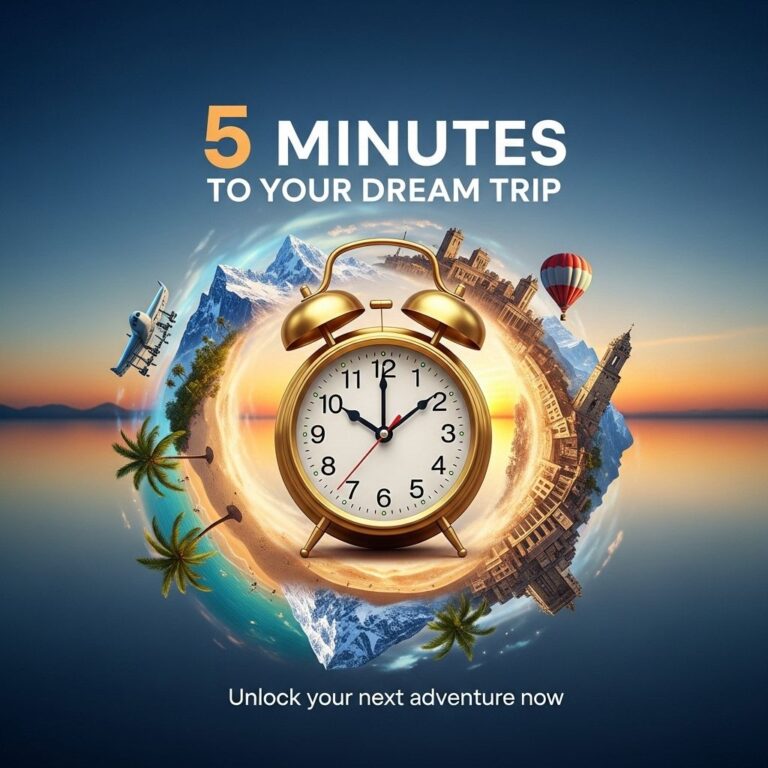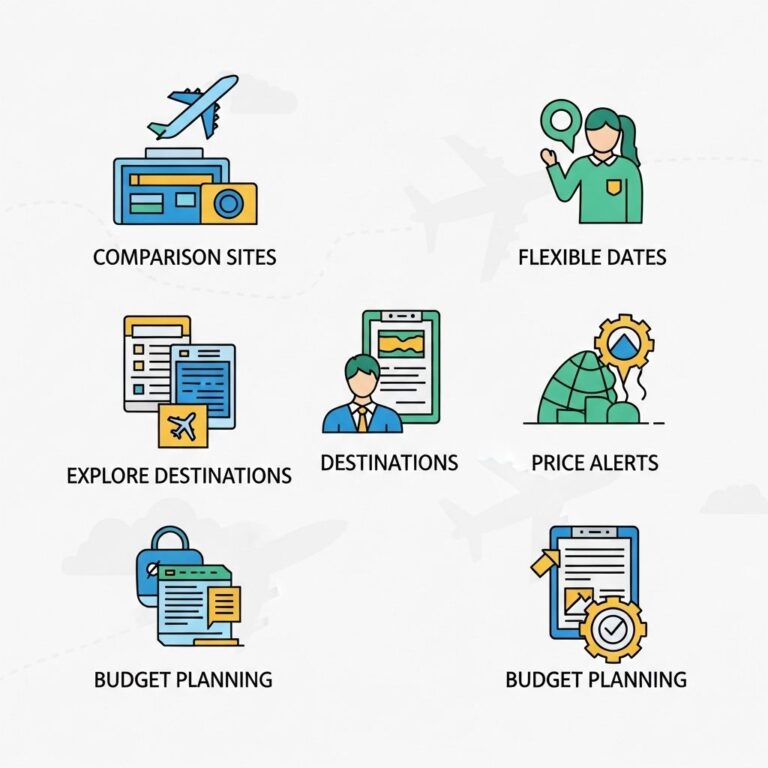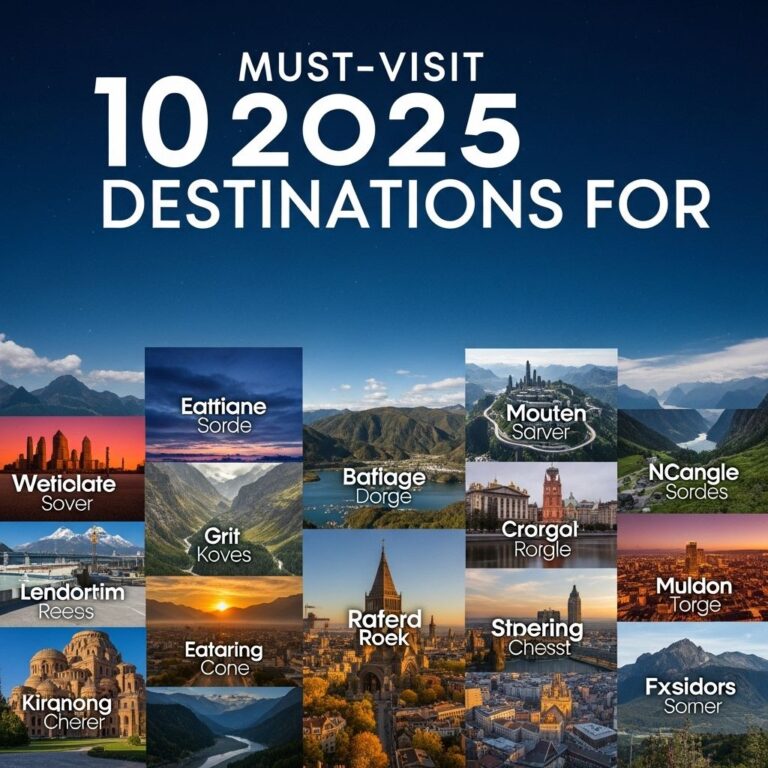Traveling solo can be an exhilarating experience, offering a sense of freedom and adventure that is hard to replicate. With advancements in technology, especially artificial intelligence, planning a trip has never been easier. Imagine having an assistant that understands your preferences, budget, and even the hottest destinations. In this article, we will delve into how AI helped me meticulously plan a $1,500 solo trip, from choosing the destination to booking accommodations and activities.
Table of Contents
Choosing the Destination
The first step in any trip is deciding where to go. Traditionally, this could involve endless research and comparing various places. With AI, I utilized recommendations based on my previous travel patterns, interests, and the current trends in travel. Here’s how AI helped me narrow down my options:
- Analyzed my past trips.
- Provided trending destinations based on my interests.
- Considered budget-friendly options based on my $1,500 limit.
Ultimately, I decided on a week-long adventure to Lisbon, Portugal, a city known for its stunning architecture, rich history, and vibrant culture.
Setting a Budget
With my destination chosen, the next step was to establish a budget. AI tools can recommend how much to allocate for various components of a trip. Here’s a rough breakdown of my $1,500 budget:
| Expense | Estimated Cost |
|---|---|
| Flights | $600 |
| Accommodation | $400 |
| Food | $250 |
| Activities | $200 |
| Transportation | $50 |
| Miscellaneous | $50 |
Using AI Budgeting Tools
AI budgeting tools helped track and optimize my spending. They analyzed historical spending patterns and suggested realistic allocation for each category, ensuring I stayed within my budget while enjoying the trip. The tools also provided alerts when I was nearing my budget limit for any category.
Booking Flights
Finding the best deals on flights can be tedious, but AI-powered algorithms made this process seamless. Here’s how:
- Comparative Analysis: AI platforms compared prices across multiple airlines and travel agencies in real time.
- Price Alerts: I set up alerts for price drops on my desired route, ensuring I secured the best deal.
- Optimal Timing: AI suggested the best times to book flights based on historical data, helping me save money.
After some analysis, I booked a round-trip flight for $600, flying from New York to Lisbon with a layover in Madrid.
Finding Accommodation
Next, I needed a place to stay. AI made this process easier through the following:
- Personalized recommendations based on my preferences for location, price, and amenities.
- Evaluating reviews and ratings to find the most suitable options.
- Comparing prices across various booking platforms for the best deal.
After filtering through several options, I chose a cozy Airbnb in the historic Alfama district for $400 for the week. This choice allowed me to immerse myself in the local culture while being close to major attractions.
Planning Activities
With flights and accommodation sorted, it was time to plan activities. AI tools provided tailored suggestions based on my interests such as food, art, and history. Here’s a sample itinerary created with AI assistance:
Day 1: Explore the Alfama District
Visit the Lisbon Cathedral, wander through narrow streets, and enjoy traditional Fado music.
Day 2: Belem District
Tour the Jerónimos Monastery, indulge in Pastéis de Belém, and visit the Maritime Museum.
Day 3: Sintra Day Trip
Take a train to Sintra to explore Pena Palace and the Moorish Castle.
Day 4: Local Cuisine
Join a cooking class to learn how to make Portuguese dishes.
Day 5: Art and Culture
Visit the Calouste Gulbenkian Museum and the MAAT (Museum of Art, Architecture and Technology).
Day 6: Relaxing Day
Spend a day at the beach in Cascais, enjoying the sun and surf.
Day 7: Shopping and Departure
Visit local markets for souvenirs before heading to the airport.
The AI platform also provided me with options to book tours and experiences directly, helping me save time and ensuring I didn’t miss out on any must-see attractions.
Transportation in Lisbon
Getting around in Lisbon is straightforward, and AI helped me find the best options. I considered:
- Public Transport: Lisbon has a well-connected tram and metro system. AI suggested purchasing a Lisbon Card for unlimited travel.
- Walking: Many attractions are within walking distance, enhancing the experience of exploring the city.
- Ridesharing Services: For destinations further away, I used apps like Uber, which were efficient and cost-effective.
Overall, I allocated about $50 for transportation during my week in Lisbon.
Staying Within Budget
Throughout my trip, AI tools continually tracked my spending against the budget. They provided insights and suggestions for saving, such as:
- Eating at local markets instead of restaurants.
- Taking advantage of free walking tours.
- Exploring free attractions like parks and viewpoints.
Thanks to these tips, I managed to stick to my budget, even saving a little extra for a last-minute souvenir shop visit.
Post-Trip Reflections
Upon returning from my solo adventure, I reflected on the efficiency and convenience provided by AI in planning my trip. The entire process was streamlined, allowing me to focus on experiencing Lisbon rather than getting bogged down in logistics. From personalized recommendations to budgeting and activity planning, AI transformed my travel experience.
Final Thoughts
In conclusion, AI technology is revolutionizing how we plan our travels. With tools that cater to individual preferences and budgets, the future of travel planning looks promising. Whether you’re a seasoned traveler or planning your first solo trip, leveraging AI can enhance your experience, making it enjoyable and stress-free. My $1,500 trip to Lisbon was not only memorable but also a testament to how technology can simplify adventure.
FAQ
How can AI help me plan a solo trip?
AI can analyze your preferences, budget, and travel history to suggest personalized itineraries, accommodations, and activities for your solo trip.
What tools can I use for AI-driven travel planning?
There are various AI-powered travel planning tools and apps such as Google Travel, Hopper, and TripIt that can help streamline your trip planning process.
Can AI find the best deals for flights and hotels?
Yes, AI algorithms can compare prices across multiple platforms in real-time to help you find the best deals on flights and hotels for your trip.
Is it safe to travel solo with AI recommendations?
Yes, using AI recommendations can enhance your travel safety by suggesting well-reviewed accommodations and activities, but always do your own research and stay aware of your surroundings.
How can I budget my solo trip effectively using AI?
AI can help you estimate costs based on your travel preferences and suggest budget-friendly options for transportation, lodging, and dining.
What should I consider when using AI for travel planning?
When using AI for travel planning, consider factors such as data privacy, the accuracy of recommendations, and the importance of personal touch in your travel experience.









